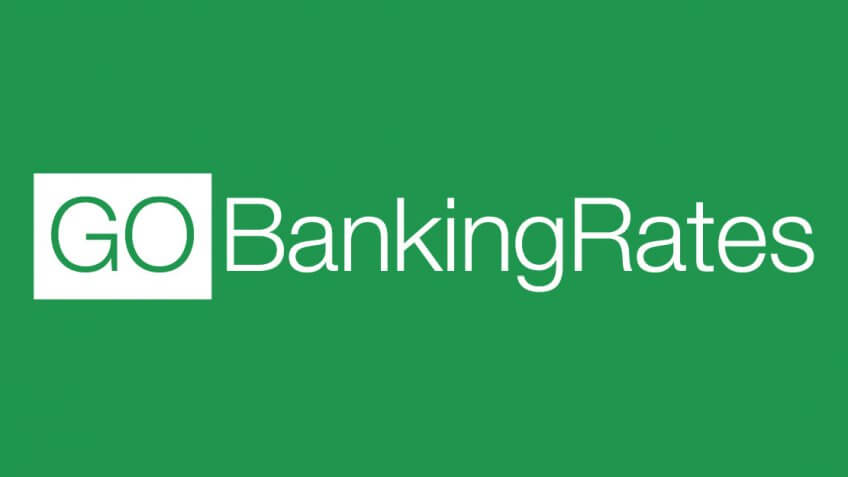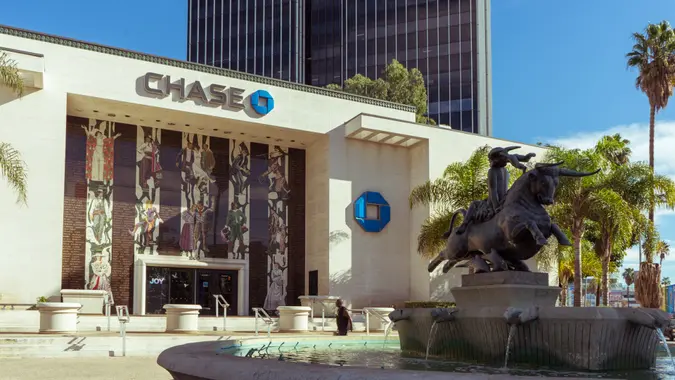Which Savings Account Will Earn You the Most Money?

Commitment to Our Readers
GOBankingRates' editorial team is committed to bringing you unbiased reviews and information. We use data-driven methodologies to evaluate financial products and services - our reviews and ratings are not influenced by advertisers. You can read more about our editorial guidelines and our products and services review methodology.

20 Years
Helping You Live Richer

Reviewed
by Experts

Trusted by
Millions of Readers
Savings accounts have evolved and there are many kids–from the local brick-and-mortar bank to high-interest, no-fee choices offered by online-only options.
In this guide, you’ll see on what to look for in an account to make sure it gives you what you need while gaining the most from your returns, including information on CDs so you can find what’s best for your goals.
Who Should Open a Savings Account?
Anyone who wants to grow their money in a safe and easily accessible way would benefit from a savings account. If you’re just starting out on your savings journey–for example, you’re a student or you’ve just entered the work force–it can be super helpful to get started off on the right foot.
Savings accounts allow you to plan for a specific goal. You can set aside funds for a vacation, to buy a home or just a rainy day. You can also set up transfers to add more to your balance. The best part is you don’t even have to think about it–it’s a low-effort way to build a good financial habit.
Best Savings Accounts for Earning Interest
Finding the right fit for your financial needs and goals is important. Here are four common options and what each has to offer.
- High-yield savings account
- Online savings account
- CDs
- Money market accounts
14. High-Yield Savings Account
Typically, a savings account offers much greater than the national average savings interest rate. This is currently 0.41% APY as of March 17, 2025, according to the FDIC. Both banks and credit unions offer them.
The best high-yield savings accounts offer much higher interest rates than traditional savings accounts, allowing you to grow your money while the interest compounds. Because these are savings accounts, they also usually offer no fees and low or no minimum balance requirements.
A savings account is also a very safe form of investing. They are also almost always insured up to $250,000 by the U.S. government through the FDIC or National Credit Union Administration.
Online Savings Accounts
Because they have much lower overhead than traditional commercial banks, which have physical branches, staff and other costs, online banks routinely offer the highest interest rates for savings accounts. They also usually offer low or no fees and low minimum balance requirements.
They do come with some potential drawbacks, however. For one, person-to-person customer service is not available. Also, you’ll want to make sure their network of ATMs, if they have them, is adequate for your needs and in your area. You’ll also want to make sure you are comfortable doing your banking online or through an app.
Certificates of Deposit
CDs offer high interest rates with the tradeoff of tying up your money for a fixed period, anywhere from three months to many years. At credit unions, you might see them referred to as share certificates or certificates.
The benefit of a CD is that once you lock in the rate, it won’t fluctuate the way a savings account will. There are pros and cons to CDs, however. If rates drop, yours does not. If rates rise, however, you don’t benefit as much, and your rate stays the same.
Early Withdrawal Penalties
You might face early withdrawal penalties if you take the money out before the CD reaches maturity. If you are looking for steady returns and have a mid- to long-term savings goal in mind, such as saving for a down payment on a house or a new car, a CD may be a wise choice.
Money Market Accounts
Both banks and credit unions offer money market accounts. Money market accounts typically have interest rates that are competitive with other high-yield savings accounts. However, they might include features like check-writing capabilities or even online bill pay directly from the account.
Money market accounts are a good place to hold emergency savings, thanks to the combination of high yields and how easy and quick it is to access your funds. Read the fine print before opening a money market account, though, because some may have monthly fees, minimum opening deposit requirements or ongoing minimum balance requirements. As with CDs, the larger your savings, the higher the interest rate in most cases.
Factors To Consider When Choosing a Savings Account
What should you think about when you consider which savings account will earn you the most money? High interest earns money for you while it sits, to start. Here are some other factors to consider:
Rates Across Different Banks
Growing your money is an important reason for opening a savings account, and since rates can vary, it’s important to shop around. A higher annual percentage yield ensures your money grows faster over time and takes advantage of compounding interest.
Fees
While people often focus most on the interest rate of competing savings accounts, other factors can add or subtract from that comparison. Fees can erode your earnings, so it’s important to find an account with minimal or no fees. Consider the cost of monthly maintenance fees, withdrawal penalties and minimum balance requirements.
Accessibility and Withdrawal Limits
If you need access to your funds regularly, make sure the account you choose can provide it. A lower interest rate or a small fee might be worth the convenience. Some savings accounts impose limits on the number of withdrawals per month. Also, check out each account’s mobile banking features, ATM network and customer service–do the reviews line up? Do they encourage or deter you?
Top Banks Offering the Best Savings Account Rates in 2025
As of March, several banks offer over 4.00% APY. But which savings account will earn you the most money? Here are five top picks.
Pibank
This online bank offers an APY of , with no minimum deposit, no fees and FDIC insurance.
Openbank
This bank also offers a competitive APY of with no minimum deposit, no fees and FDIC insurance.
Fitness Bank
Fitness also offers APY on savings accounts, but bumps it to APY if you also open a checking account.
Compare the Top Savings APYs
| Financial Institution | APY | Minimum Opening Deposit |
|---|---|---|
| BrioDirect | $5,000 | |
| PiBank | None | |
| Fitness Bank | $100 | |
| Openbank | $500 | |
| Popular Direct | $100 | |
| Newtek Bank | None | |
| Barclays Bank | Up to | N/A |
How To Make the Most Out of Your Savings Interest
Finding a high interest rate savings account is only the beginning. Here are strategies to maximize that higher yield.
Automate Deposits
Life gets busy and money sitting in a checking account tends to get spent. One of the best ways to take the work out of saving money, and ensuring you do it, is to make it invisible. Set up automatic transfers from your checking account or paycheck to your savings.
Take Advantage of Promotional Rates
Banks and credit unions often offer promotional rates to pull in new customers. These introductory rates can be much higher than standard APYs. So even if you have your money in one bank, don’t stop researching and shopping.
Choosing the Right Account Type for Your Goals
The best savings account depends on your specific financial objectives. Understanding the differences between account types is key to making an informed choice.
- High-yield savings accounts: These are ideal for want their money to be accessible at any time. They are also good if you plan to add more to the account regularly as part of your savings strategy.
- Certificates of deposit: CDs are best suited for savers who don’t need to access their money for the period they sign up for. They are also great if you believe interest rates will fall in the future. CD rates are fixed, while most savings accounts are adjustable.
- Annuities: These are offered by insurance companies to give you a long-term savings solution with guaranteed returns. They come with risks, however, such as limited liquidity and penalties or charges for early withdrawals.
Risks and Downsides To Consider
While savings accounts offer numerous benefits, there are potential drawbacks to be aware of:
High-Yield Savings Accounts
High-yield accounts usually have variable interest rates, which means they fluctuate with market conditions and other factors. These also yield less than longer-term investment strategies like stocks, bonds and mutual funds.
Inflation
In periods of high inflation, such as those seen in the last few years, any interest gained could be wiped out by higher overall costs. For instance, if inflation is more than your APY, you are essentially losing purchasing power. So, ideally, your overall investment strategy would take inflation into account.
Comparing Savings Accounts to Other Investment Options
Savings accounts offer security and liquidity, but they may not always be the best investment for your financial situation.
Savings Accounts vs. Stocks, Bonds and Mutual Funds
Savings accounts are low-risk and give you guaranteed returns but they often fall short of the higher earning potential of market investments like stocks, bonds and mutual funds. If you feel comfortable taking on more risk, these might be a more suitable investment strategy for long-term financial growth.
Benefits of Low-Risk Saving vs. High-Risk Investing
For those who seek stability, savings accounts are ideal because they offer predictable returns and government-backed insurance. High-risk investments, on the other hand, can be more lucrative, but can also lead to losses during market downturns.
FAQ
Here are answers to some of the most frequently asked questions about savings accounts and their earnings.- Which savings account will earn you the most money daily or monthly?
- High-yield savings accounts, especially from online-only banks, typically offer the highest returns. Today's online high yield savings accounts offer APYs as high as 5.25% annually. To earn faster, look for an account where interest is compounded daily.
- Are online savings accounts better than traditional banks?
- If your goal is to maximize your interest rate and return, then yes. However, traditional banks might offer products or services that more align with your particular needs.
- What type of account pays the most?
- A high-yield online savings account typically earns you the most money with the least amount of fees. You might also find CDs or certificates with terms of 12 months or longer that offer competitive interest rates, but keep in mind that your money will be tied up for the duration of the term, or you could face early withdrawal penalties. For a combination of liquidity and high yields, consider an online savings account, such as Ally Bank, which offers 3.30% or Tab Bank, which offers 3.61%. OceanFirst Bank and CloudBank 247, offer 5.25% and 5.20% APYs, respectively, when you sign up through Raisin, formerly SaveBetter.
- Which savings account earns the least money?
- Traditional savings accounts, such as from brick-and-mortar banks, tend to offer lower interest rates than online-only savings accounts. These banks are typically more widely available to customers, so the priority is on providing convenience and ease of use, rather than on earnings.
- What is the best way to earn interest on my money?
- That depends on many factors, including your risk tolerance, your need to access your money, and your long-term investment strategy and financial goals. For this reason, the account that offers the highest interest rate might not necessarily be the best for you.
The Bottom Line
When you’re thinking about which savings account will earn you the most money, ask yourself what you need most. A passive way to earn extra dollars on top of what you already have? A good place to start is to find the highest interest rate among banks or credit unions that offer the services you need.
High-yield savings accounts each offer unique advantages and drawbacks–the key is finding the right choice for your financial goals.
Dawn Allcot contributed to the reporting for this article.
Rates are subject to change; unless otherwise noted, rates are updated periodically. All other information on accounts is accurate as of March 26, 2025.
Our in-house research team and on-site financial experts work together to create content that’s accurate, impartial, and up to date. We fact-check every single statistic, quote and fact using trusted primary resources to make sure the information we provide is correct. You can learn more about GOBankingRates’ processes and standards in our editorial policy.
- Ramsey Solutions. 2024. "What Is a High-Yield Savings Account and Do I Need One?"
- U.S. News. 2025. "Best High-Yield Savings Accounts in 2025 – January 2025."
- Synchrony. "Online vs Traditional Banks: Pros, Cons, and More Explained."
- Citizens Bank. "What is a money market account?"
- FDIC. "Deposit Insurance."
- Wells Fargo. "What is FDIC Insurance?"
 Written by
Written by  Edited by
Edited by 

























